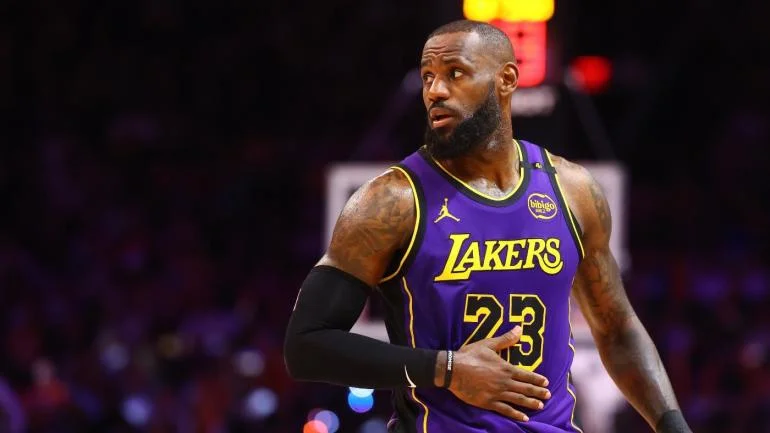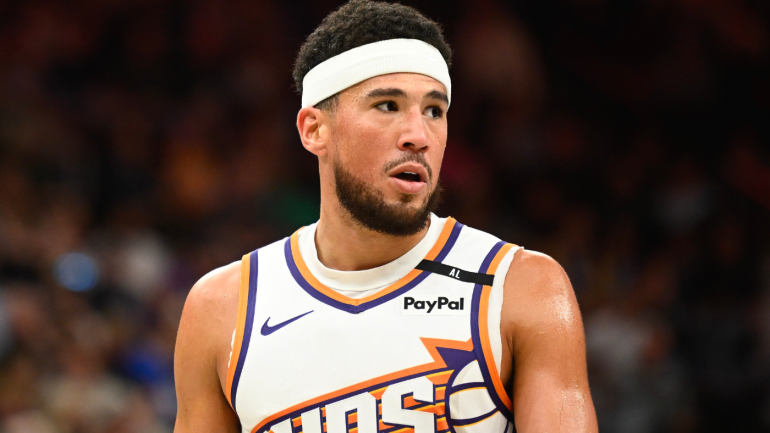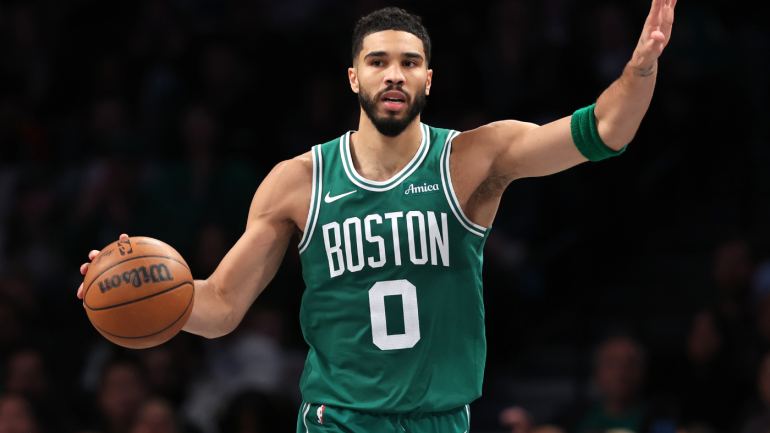The playoffs are here and we should all be soaking up every minute, every blowout, and every Manu Ginobili block. However, there are a few teams that have already entered their offseason — 14 lottery teams, and 8 more teams that got sent packing in R1.
Today, we’re going to start looking at teams that lost in R2, starting with a team struggling in the wake of a massive disappointment.
TORONTO RAPTORS
The Toronto Raptors find themselves in a tough situation.
There’s an absurd argument out there that good teams should lay back and “wait out” the Warriors and Cavs run of dominance. Okay. Good luck with that. The Warriors’ stars (Steph Curry, Kevin Durant, Klay Thompson, and Draymond Green) are all between the ages of 27-29. Provided they stay together, they’re going to be dominant for the next 3-4 years. LeBron James may be 32 years old, but at this rate, he appears like he’ll be a superstar at least until the age of 35.
How many “good teams” have a young enough core to wait 3-4 years for that window to open up? Unless you happen to have a Demolition Man style cryo-tank available and can deep freeze Kyle Lowry and Chris Paul in their primes and dethaw them come 2021, it’s not going to work.
Of all those good teams, the Toronto Raptors have been the boldest and most direct about facing the challenge head on. They signed DeMarre Carroll on the premise that he could slow down LeBron, and when he looked wobbly, they traded for P.J. Tucker to do the same. The Raptors engineered their roster specifically to take down the Cavs, and had a point differential that suggested they may be able to hang with them (in fact, it was even better at +4.2 versus Cleveland’s +3.2). Count me among the fools who actually thought they had a chance in these playoffs.
But you know what they say… when you come at the king, you best not miss. And the Raptors missed. And missed. And got whacked 4-0 in embarrassing fashion.
Now, it’s going to be a fascinating summer. I don’t think Masai Ujiri can run it back and expect different results, so changes will come. How big will, and should, they be? Ujiri doesn’t need our help, but let’s offer our two cents anyway:
(1) Consider firing Casey
When things go wrong, it’s always the easy way out to blame the coach. It’s true partly because of the PR and optics, but also because of simple economics. A team can hire and fire a new coach every single month and not have any effect on their salary cap.
Given that, Dwane Casey is going to be in the crosshairs. He’s done an admirable job building this team into a consistent winner – rattling off two 50-win seasons in a row. It’s arguably the best Raptors era in the franchise’s history.
However, if we’re going to nitpick, there are nits to pick. I always found Casey a step slow (or a game slow, more specifically) when it came to lineup and gameplan adjustments in the playoffs; in a seven-game series, that’s crucial. In general, it’s hard to blame a coach for injuries, but it was odd that Kyle Lowry — coming off an extended playoff run and an Olympic gold medal – played 37+ minutes a game. Considering the team’s depth at PG, his playing time could have been closer to 30 than 40.
Ujiri has already started to brace the team for a possible coaching change, talking about how the team needs to change its culture and “playing style.” That’s hard for a current coach to change overnight, so I’d expect him to consider new candidates entirely.
A popular in-house candidate will be assistant Nick Nurse. Nurse is an up-and-coming coach that I actually recommended for the Pacers’ job (that’s unlikely to be open anyway). If I had to hire between the two to guide my team into the future, I’d pick Nurse. Of course, promoting a current assistant can be a tricky practice. It happens from time to time (in Indiana, actually, as well as recently with the N.Y. Giants and Tampa Bay Bucs in the NFL), but it would depend on the locker room and their respect for Nurse. To make a move like that, you’d need to take the temperature of the room first.
In terms of outside hires, two other names that I’d consider would be Jay Larranaga (BOS) and James Borrego (SA), two assistants working as lieutenants for top NBA coaches in Brad Stevens and Gregg Popovich. If you watch Celtics and Spurs games, you’ll see Stevens and Pop conversing with Larranaga and Borrego quite frequently, suggesting they’re heavily involved in decision making. Both may be able to open up the offense and install more ball movement. The bigger boom/bust pick would be the Spurs’ assistant Ettore Messina, an international coaching legend who may be ready to lead his own American (or Canadian) team.
(2) Consider life without Lowry
By far, the biggest decision this summer will come down to free agent Kyle Lowry.
Lowry has established himself as a legitimate superstar in the league. The fact that his shooting has improved so much (41.2% from three on 7.8 attempts per game) elevate him to the elite at the position. His real +/-, according to ESPN, illustrates that, calculating him as a +4.66 on offense and +1.14 on defense, a strong mark for a small guard.
At the same time, he’s 31 years old. His shooting and basketball IQ should age well, but he’s a stocky 6’0″ guard with some injury and conditioning issues in the past. I wouldn’t be shocked to see his body break down in 3 or 4 years. A fair contract for Lowry, in my mind, would be to pay him $35 million in Year 1, $30 million in Year 2, $25 million in Year 3, and $20 million in Year 4. Unfortunately, the NBA laws prevent that steep of de-escalation. Personally, I don’t understand why: why wouldn’t you pay more for a 31-year-old than a 35-year-old? Either way, because of those rules, a fair contract will get even trickier, because Lowry will get major money in each year of the deal.
Given that, I’d strongly recommend the team draw a line in regards to the length of the contract (more so than the annual salary). The team would love a contract that would give him 2 years + a 1-year team option, but that’s unrealistic. 3 years + a 1-year team option would be fine as well. 4 years or 5 years guaranteed is where I’d draw the line; in my mind, that’s too much of a risk.
Fans may bristle at this, suggesting that the Raptors need to pay Lowry the max in order to keep him, even if that means 5 years, $200 million. My question is: do they? Effectively, they’d be bidding against themselves in that regard in terms of the length of the deal. The concerns that I’d have about Lowry’s age would be shared by other teams; I don’t know if teams are lining up to pay a 35-year-old Lowry the max. Maybe you can re-sign him for a 3+1 deal.
If another team does jump into the pool headfirst and bowls Lowry over with an offer, the Raptors have to be prepared to let him walk to protect the long-term interests of the franchise.
Part of the reason that I’d be comfortable letting Lowry walk (if need be) is because Toronto is braced for such a staggering loss. Cory Joseph is among the best backup PGs in the league and can be a fine stopgap. I happen to be a huge fan of Delon Wright as well. Wright hasn’t gotten the chance to break out yet, but he just may. He’s a 6’5″ slasher/scorer whose length will help him on the defensive end. I genuinely believe Wright can be a 15 point scorer in this league, and maybe even better than that if his three-point shot develops.
If Toronto loses Lowry and hands the reins over to Joseph+Wright, I believe the team can still be a playoff-caliber squad, possibly in the 6th/7th seed range, with the potential to rise based on Wright’s upside. But if you’re not a Delon Wright fan (which is likely) I can see the argument for more urgency with a Lowry deal.
(3) Consider downsizing
Aside from Kyle Lowry, the Raptors have several other impact free agents in Serge Ibaka, Patrick Patterson, and P.J. Tucker.
The presumption would be that their fate would depend on Lowry’s. After all, what’s the point in bringing back vets if you lose Lowry? You’re jumping into a rebuild, right? I don’t think that’s necessarily true. As mentioned, I believe this team – minus Lowry – can still contend for the playoffs. It doesn’t make sense to “blow it up” entirely if you still carry a prime DeMar DeRozan anyway.
With the aim to make the playoffs again, I’d lean to prioritizing Serge Ibaka among those free agents. OKC and Orlando both gave up on Ibaka, but I felt like he played well for Toronto. More than anything, his ability to play PF or C showed in the playoffs and added an entirely new dimension to this Raptors team. Ibaka’s ability to protect the rim on defense and stretch the court on offense make him an especially valuable piece in the modern NBA. In fact, almost every single one of my “offseason blueprints” suggests that the team needs an Ibaka-type. The Raptors have the ACTUAL Ibaka. I’m not convinced that he’s 27 (as claimed) but he still has some life in his legs. The team should keep him, and continue to experiment with him at the 5.
I happen to like Patterson and P.J. Tucker as well, but my interest in re-signing them comes down to other factors. If the team keeps Ibaka, Patterson is expendable. The team’s need for Tucker may come down to the health of DeMarre Carroll. If they feel like Carroll will always be a shell of himself, then maybe Tucker is important as an ace defender. If Carroll can contribute 25/30 solid minutes a night, Tucker is more of a luxury. Given his strong defense, Tucker will presumably get a nice sized contract; given that he’s 32, the team should approach a long-term extension cautiously.
The last move that I’d consider would be to secretly shop around Jonas Valanciunas. Valanciunas has his merits as a big man scorer (12.0 points, 9.5 rebounds per game in only 25.8 minutes), but he slows them down from time to time. The fact that Ibaka can play some center makes me even more inclined to see what Jonas’ market is. I also happen to think young Jakob Poeltl could fill in admirably for those remaining 20/25 minutes; he’s a mobile big who’s more polished than other prospects his age.
I’d try to package Valanciunas (who is on a reasonable contract) with your other tradable piece: Norman Powell. Powell looked great in the playoffs, and only costs $1 million for next year, but that’s the point: he has a good amount of trade value. Powell may never play a huge role in Toronto with DeMar DeRozan blocking his path forward. If the team can turn Valanciunas and Powell into a bona fide star SF or PF (preferably a shooter), I would do that. The Raptors could play smaller, more positionless basketball like Milwaukee, with Ibaka logging minutes at C. If they start Delon Wright at PG and Ibaka at C, every single player in their starting lineup would be between 6’5″ and 6’10” — a stark contrast to their current 6’0″ to 7’0″ spread. That’d amount to a faster, more switchable unit that may actually be able to hang with the elite of the elite in the playoffs. Or at least, win a game or two.




